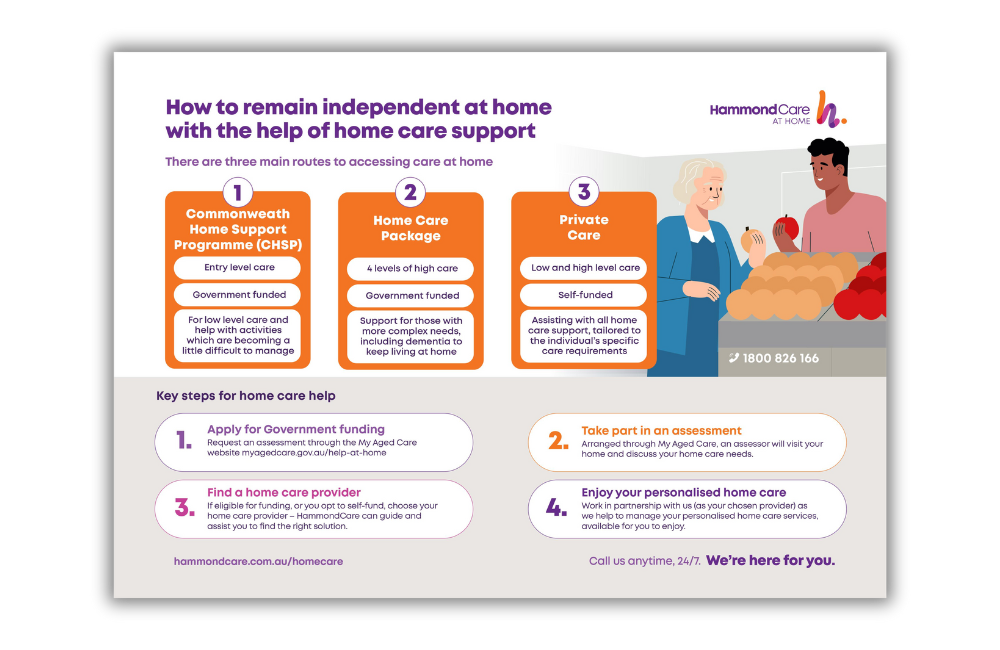How support at home under the NDIS empowers people with disabilities
How support at home under the NDIS empowers people with disabilities
Blog Article
All Concerning Home Treatment Solutions for People With Disabilities: NDIS Registered Assistance
Home care services under the NDIS play a critical duty in supporting people with impairments. These solutions are made to enhance day-to-day living via tailored support, varying from individual care to movement support. Recognizing just how to navigate these alternatives can be complicated. This summary explores the different elements of NDIS home treatment, from readily available services to the option of service providers, highlighting important factors to consider for those looking for assistance. The trip towards equipped treatment begins right here.
Recognizing the NDIS and Its Function
The National Disability Insurance Scheme (NDIS) acts as a transformative structure created to offer assistance and services for individuals with specials needs. Developed to enhance the lifestyle and warranty fair accessibility to essential resources, the NDIS encourages participants by offering individualized strategies customized to their one-of-a-kind demands. It aims to foster independence, making it possible for individuals to seek their personal objectives and aspirations.Through an organized method, the NDIS allots funding for various supports, consisting of education and learning, work assistance, and neighborhood participation. This comprehensive system not just concentrates on prompt care however likewise highlights long-lasting developmental outcomes. By advertising option and control, the NDIS encourages participants to select their preferred solution carriers, ensuring that care aligns with their worths and choices. Eventually, the NDIS stands for a substantial commitment to enhancing the lives of people with disabilities, cultivating inclusivity, and developing a more helpful culture.
Kinds Of Home Treatment Solutions Available
Various kinds of home treatment solutions deal with individuals with handicaps, primarily focusing on personal care support and break treatment choices. Personal care help provides important support with everyday activities, while respite care provides short-lived alleviation for key caregivers. Comprehending these services is important for guaranteeing the well-being of both people with specials needs and their families.
Personal Treatment Support
While maneuvering every day life can present obstacles for individuals with impairments, individual treatment assistance supplies necessary support customized to their one-of-a-kind requirements. This type of home treatment solution includes a range of activities made to advertise self-reliance and improve lifestyle. Individual care aides assist with everyday tasks such as showering, clothing, grooming, and toileting, making certain individuals keep individual health and convenience. They might also assist with meal prep work, medication management, and movement assistance. By giving individualized treatment, these experts encourage people to engage even more completely in their social tasks and everyday regimens. On the whole, personal treatment help plays a considerable function in cultivating self-respect and freedom for those with disabilities, enabling them to grow in their home atmosphere.

Reprieve Treatment Options
Reprieve care functions as a necessary source for family members and caregivers of people with disabilities, giving short-term relief from the needs of daily caregiving. This sort of service can take numerous kinds, including at home reprieve treatment, where skilled experts go to the home to assist with care tasks. Households might opt for facility-based respite care, where individuals obtain treatment in a specific atmosphere, permitting caretakers to take a break. Additionally, some companies provide emergency break services for unforeseen scenarios. These choices not just assist ease caretaker anxiety yet additionally advertise the health of individuals with handicaps by providing them new experiences and social communication. On the whole, break treatment plays an important function in sustaining both caregivers and those they take care of.

How to Accessibility NDIS Home Care Providers
Accessing NDIS home care solutions includes recognizing the qualification standards set forth by the National Special Needs Insurance Coverage Scheme. People must navigate an organized application process to secure the necessary assistance customized to their requirements. This area will certainly make clear both the qualification requirements and the actions included in requesting services.
Qualification Requirements Clarified
To get approved for NDIS home care services, people must fulfill certain eligibility requirements that analyze their requirements and circumstances. Candidates need to be matured between 7 and 65 years and have a substantial and long-term handicap that affects their capacity to perform everyday tasks. In addition, they need to be an Australian person, a long-term homeowner, or hold a Protected Special Group Visa. The NDIS requires proof of the disability, typically via medical assessments or records. Additionally, people need to show that they call for assistance to join social and economic life. These criteria assure that solutions are directed towards those that genuinely require support, promoting independence and boosted high quality of life for people with handicaps.
Application Refine Steps
Can I Choose My Own Support Workers Via NDIS?
The private made inquiries whether they might pick their own assistance employees under the NDIS framework. Generally, individuals have the adaptability to choose assistance workers, fostering personalized treatment that lines up with their specific needs and preferences.
What Occurs if My Needs Change After Getting Assistance?
If a person's needs modification after receiving support, they should interact these modifications to their solution company. Changes can be made to the care plan, ensuring that the assistance continues to be effective and relevant for their situations.

Exist Limits on Exactly How Numerous Hours of Care I Can Obtain?
The private asked about potential restrictions on the number of treatment hours obtained. Normally, such restrictions might exist based on specific plans or funding setups, highlighting the importance of assessing standards and contracts consistently.
Can I Utilize NDIS Funding for Home Adjustments?
The inquiry of utilizing funding for home modifications emerges regularly. Normally, people may use NDIS financing for necessary modifications to their homes, ensuring ease of access and safety and security, set upon meeting certain qualification requirements and standards.
Just how Do I Handle Grievances Concerning My Home Care Solutions?
To address issues about home care services, individuals must first document their concerns. Then, they can interact directly with their company, seeking resolution, or intensify the problem to relevant oversight bodies if necessary. Home treatment solutions under the NDIS play a crucial function in supporting individuals with disabilities. Different types of home treatment solutions cater to people with specials needs, mainly focusing on individual care assistance and break care alternatives. support at home. Individual treatment help supplies important assistance with day-to-day tasks, while break treatment check it out supplies short-term alleviation for main caretakers. Family members may choose for facility-based break treatment, where individuals get treatment in a specific setting, enabling caretakers to take a break. How can households efficiently manage the economic aspects of home care solutions for people with specials needs?
Report this page